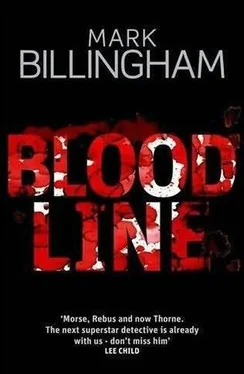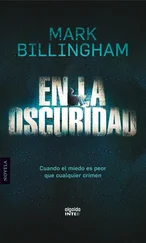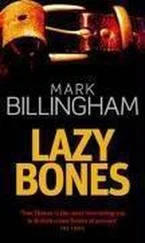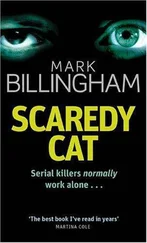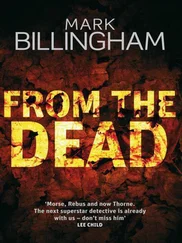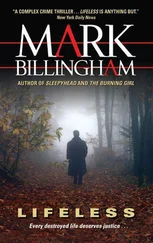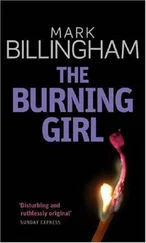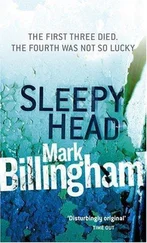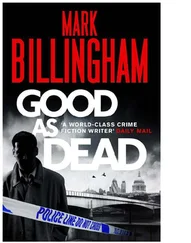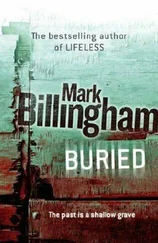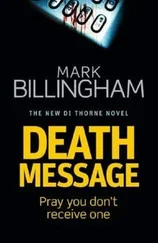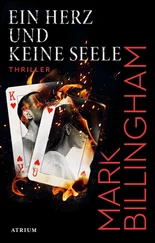He pulled up behind a Volvo whose plate marked it out as a Job vehicle that would probably be a damn sight quicker than it looked. He reached for his warrant card as he jogged across the road.
Thinking: Safe, but not particularly well.
It was a bland, two-storey building comprising eight service apartments, each one self-contained and accessible only via a secure lobby. Liveried squad cars were not allowed within two streets, local uniforms were under instructions to give the place a wide berth and there were no outward indications that it was anything other than the utilitarian block it appeared to be. Though its occupants’ bills were being picked up by the Met, their movements were rather more closely monitored than the hotel at which Carol Chamberlain was staying. Cameras in every hallway relayed pictures back to the desk on the ground floor, rapid-response units were stationed near by and two plain-clothes officers remained on the premises twenty-four hours a day.
Despite the lack of an obvious police presence, nobody staying there was in any danger of being burgled.
The building had been purchased by the Police Authority to house witnesses in high-profile trials, especially those whose evidence was being given in return for immunity, or against someone who had good reason to ensure it was not given at all. During a major drugs case the year before, the place had become known as ‘Grass-up Grange’, and it had stuck, with one wag going so far as to have a guest book embossed with the name. Each apartment had been occupied back then, and a good many officers had spent long nights playing cards or collecting takeaways. But for now, Grass-up Grange had only two residents.
Thorne entered the code he had been given and pushed open the door to the lobby. The two men who had been talking near the single desk turned as he approached. One face was new to him, but Thorne recognised the other officer as a detecctive sergeant he had worked with a few years earlier.
‘Got the short straw then, did you, Brian?’
Brian Spibey was thirty or so, tall and from somewhere in the South-West. If his premature baldness upset him, he didn’t show it, and Thorne admired anyone who accepted the inevitable and got rid of what little remained, instead of endlessly teasing, gelling or, most unforgivable of all, combing over.
‘It’s not too bad,’ Spibey said. ‘There’s a pretty fair rota system, so I’m only on three overnights a week.’
‘And how are they?’ Thorne nodded upwards, to where he knew Fowler and Dowd were staying on the top floor.
‘Oh, they’re not too bad. Started hanging out together, which suits me. Saves us having to keep them entertained.’
‘They’re calmer now, then?’ Thorne asked.
‘Well, there was a bit of screaming and shouting earlier today. Fowler that was, but I think that’s just because he’s not used to being stuck in the one place. We gave him another twenty fags and he was right as rain.’
The second officer laughed. ‘Well, as right as he’s ever going to be.’
Spibey introduced his colleague as Rob Gibbons. He and Thorne shook hands.
‘You want to show me, then?’ Thorne said.
It was two flights up, the last two rooms at the end of a perfectly straight corridor. The nylon carpet was grey and all but sparking with static electricity. There was a large plastic plant at the top of the stairs and someone had thought to break up the monotony of the pale yellow walls with a few prints, the sort you picked up in Ikea for £4.99 and slapped in a clip-frame.
Thorne thought that if he had to spend any length of time here, he’d probably start screaming and shouting himself.
Spibey nodded towards the penultimate door. ‘You want some tea or anything?’
‘There’ll be some in there, won’t there?’
‘You’ll probably have to make it yourself.’ Spibey punched a four-digit code into the security lock on the door, then knocked.
‘What?’ the voice was hoarse and high pitched.
‘You decent, Graham?’ There was a grunt of assent and Spibey smirked at Thorne before he pushed open the door. ‘Give us a shout when you’re ready for the next one,’ he said.
Fowler was sitting in an armchair angled towards the window and barely seemed to register Thorne’s arrival. He was wearing jeans and an oversized sweatshirt, part of a basic wardrobe that had been provided for him, though he had clearly not been too impressed with the shoes or socks. He was smoking and there was an ashtray full of butts on a small table in front of him.
Thorne introduced himself and apologised for not having got across earlier. He sat down on the small sofa. ‘It’s all been a bit hectic. Well, I know that things have been explained to you.’
Fowler turned then and stared at Thorne. His hair was dark and down to his collar and a week or so’s growth of beard could not disguise the sunken cheeks or poor complexion. He said, ‘Yeah, they’ve been explained.’
Thorne nodded around the room and did his best to look impressed. ‘So, this isn’t too bad, is it?’
‘It’s OK.’
‘Better than where you’ve been for a while.’
‘What do you know about that?’
Thorne leaned back, did his best to keep it conversational. He could see that Fowler was jumpy, disoriented. ‘Well, I’m here to find out, but I know you’ve been living on the street for a while. I know a bit about how these things happen.’
‘Yeah?’
‘A bit.’
Fowler produced a thin smile, clearly unconvinced. He stubbed out his cigarette, leaving the butt still smouldering. Said, ‘Maybe you should move in here.’
‘Sorry?’
‘I mean, seeing as you know.’
‘I didn’t say that.’
‘Seeing as your mother was murdered when you were a child.’ He nodded, mock-serious. ‘This bloke’s probably after you as well.’
Thorne cocked his head as if it were a fair point and asked Fowler if he wanted a cup of tea. Fowler shrugged and turned towards the window, then said, ‘Yeah, all right,’ as Thorne walked across to the tiny kitchen.
By the time Thorne sat down again and put the mugs on the table, Fowler had lit another cigarette. ‘Here you go,’ Thorne said.
There was a small hum of acknowledgement. The window was open a fraction and Fowler’s eyes were fixed on the curls and strands of smoke, following each one as it drifted up and away through the gap and beyond.
‘Are you on something, Graham?’ Thorne asked.
Fowler turned slowly, after a small delay, as though the question had taken a while to reach him. ‘What do you think?’
‘We can get a doctor over.’
‘Seen one on the first day.’
‘And?’
‘He said he could get me some methadone.’
The screaming and shouting that Spibey had mentioned was now even more understandable. ‘I’ll get it organised,’ Thorne said.
‘A few beers would be good, too.’
‘That shouldn’t be a problem.’
Fowler nodded, muttered a ‘ta’, and spread his arms wide. ‘Home from bloody home,’ he said. Then he smiled, revealing that a number of teeth were missing, top and bottom. ‘Home from homeless.’
‘We’ll see what Social Services can do about finding you somewhere permanent,’ Thorne said. ‘When all this is over.’
‘No thanks, you’re OK.’
‘You want to go back on the street?’
‘I don’t like hostels much, anything like that. Too many stupid rules, and some of those places won’t even let you have a drink.’
‘That might be a good idea.’
‘All a bit late now, mate.’
Thorne knew there were others on the streets who thought the same way as Graham Fowler, who for one reason or another had an aversion to any sort of institution. He’d shared space with several when he’d been sleeping rough a few years back. Fowler’s attitude explained why they had been unable to trace him through the records of hostels and emergency shelters.
Читать дальше
